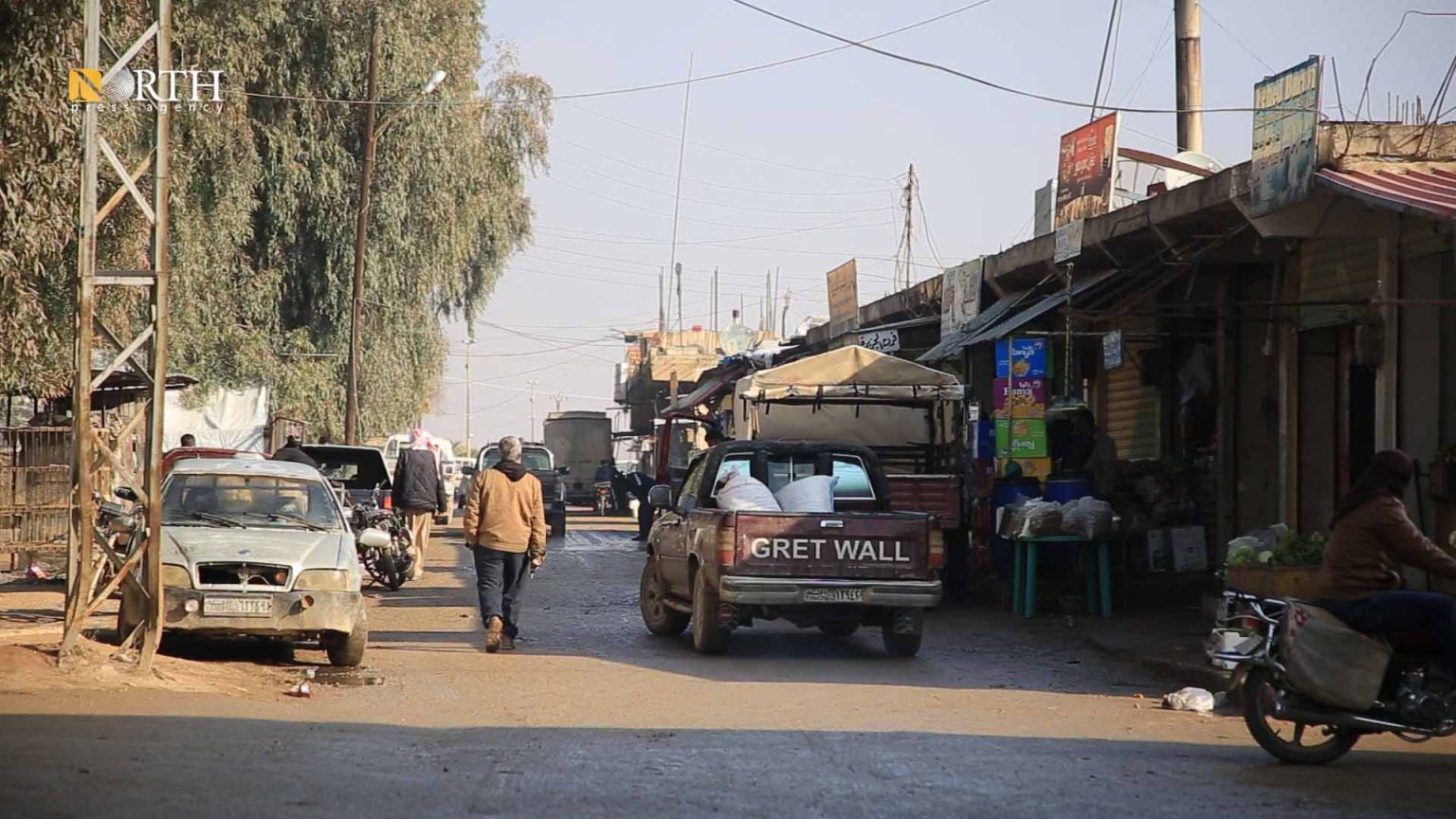Abdulkarim Ayo, a resident of Tel Tamr, north of Hassakeh, northeastern Syria, could not find sugar in food stores within the town’s market. Ayo, who traveled more than 15 kilometers from his village al-Kabir to get to Tel Tamr, said he toured all the shops to get several kilograms of sugar, but all in vain. These days, Hassakeh and northeast Syria, in general, suffer from a lack of food and basic foodstuffs, in parallel to prices hikes of available goods due to various factors, most notably monopoly, the closure of crossings, drought, and lack of fuel, according to residents and merchants.
Residents accuse the traders of monopolizing the materials amid the difficult economic conditions, and in light of the closure of Semalka border crossing with the Kurdistan region of Iraq (KRG) last month, and the continued tightening of the Syrian government checkpoints on shipments coming from areas under its control.
They pointed out that food prices have risen in recent days, despite the relative stability of the currency exchange rate.
The local population depends on the crops, which were bad last year due to drought, which in turn affected the income from raising livestock due to the loss of fodder and the low prices of livestock.
Price hike
“Everything in the market is expensive, and we can no longer buy all our families’ needs, most of the food supplies are available, but their prices are high,” Ayo said.
Read Also: Syria in 2022: Deadlock, Violence, and Possible Famine
The man depends for his family’s livelihood, as most of the region’s residents, on livestock farming and agriculture, which incurred losses in the last year.
The decline in Ayo’s income put him in front of challenges to secure the necessities of life for his family members.
Sellers are now accused of hiding old merchandise in their stores while waiting for higher prices.
Abdulkarim Haydar, the owner of a food store, obtained two tons of sugar from the Newroz Consumer Company, which distributed equal quantity to the shops a few days ago, but it soon finished due to the increased demand for it.
Since last month, the demand for foodstuffs, particularly sugar, has increased, while the high prices of some items have reduced the demand for them, according to sellers in Tel Tamr.
Haydar pointed that the shipments arriving from the government-held areas through the city of Manbij have become very high.
The problem remained in the market despite the intensification of the Supply Committee’s patrols in the town to control the markets.
Store owners in Tel Tamr believe that the shortage of sugar has caused anxiety among the residents and that the markets will not be satisfied unless there are more than usual quantities of sugar in the market.
Turkish bombardment effect
The frequent Turkish shelling of the Tel Tamr area, north of Hassakeh, has a great effect on the general situation in the area, especially the living and agricultural conditions.
As a result of the Turkish attacks and threats as well as the low allocated budget, service projects that were scheduled for the current year in Tel Tamr, north of Hassakeh, have not been implemented, the co-chair of the Tel Tamr People’s Municipality, Ahmad Haydar, said in December 2021.
Two years ago, the al-Yarubiyah/Tel Kocher crossing was closed to UN humanitarian access to north and east Syria due to the veto of Russia and China, which exacerbated the challenges facing the region, according to civil organizations.
Turkey gave up a lot of political deals for the sake of closing the al-Yarubiyah crossing and limiting the aid access through only its territory to exacerbate political pressure on the region, Assistant Secretary-General of the Future Syria Party, Ahmad Sultan, said in early December last year.
This article was edited by The Syrian Observer. The Syrian Observer has not verified the content of this story. Responsibility for the information and views set out in this article lies entirely with the author.


